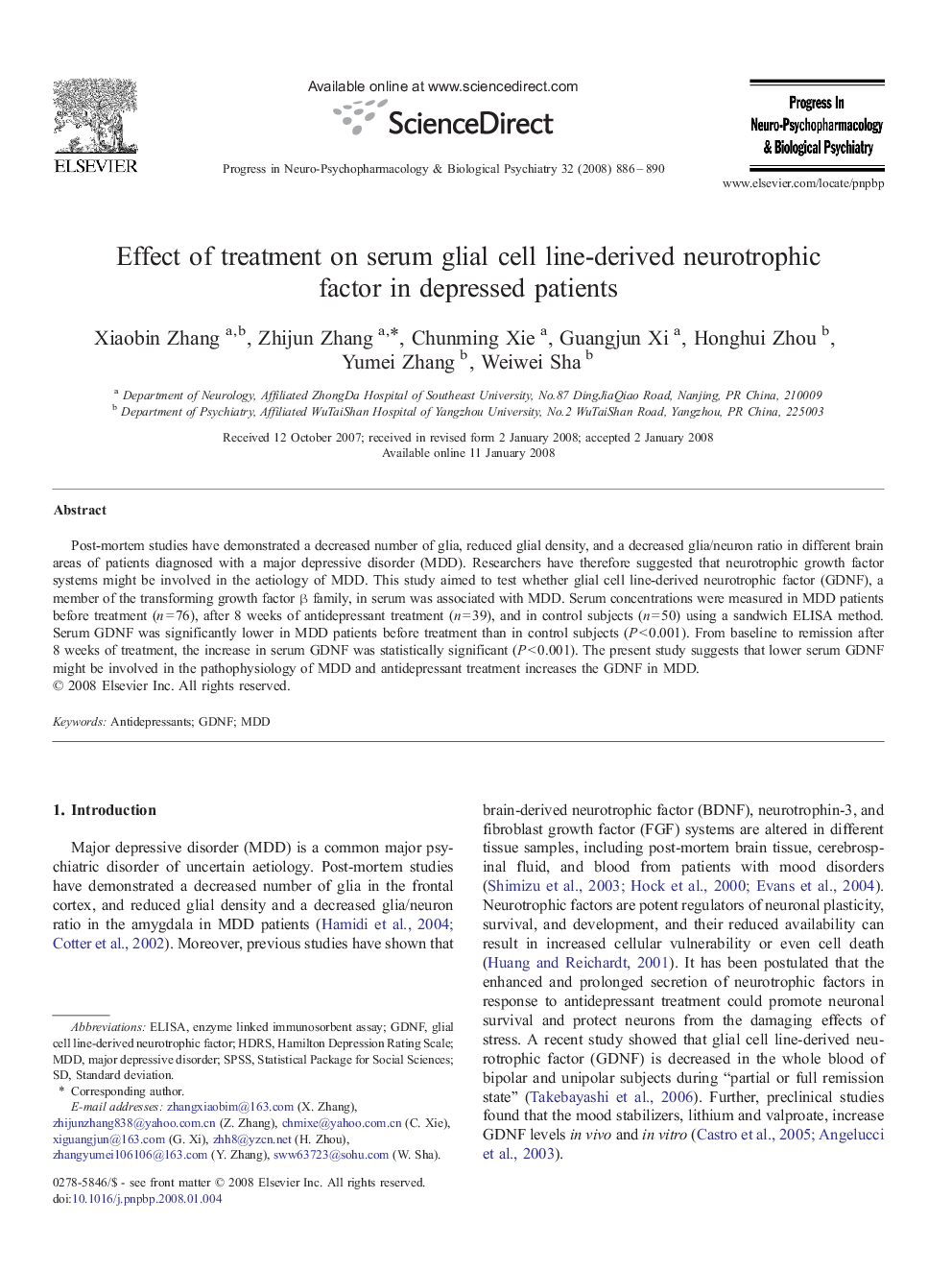| Article ID | Journal | Published Year | Pages | File Type |
|---|---|---|---|---|
| 2565875 | Progress in Neuro-Psychopharmacology and Biological Psychiatry | 2008 | 5 Pages |
Post-mortem studies have demonstrated a decreased number of glia, reduced glial density, and a decreased glia/neuron ratio in different brain areas of patients diagnosed with a major depressive disorder (MDD). Researchers have therefore suggested that neurotrophic growth factor systems might be involved in the aetiology of MDD. This study aimed to test whether glial cell line-derived neurotrophic factor (GDNF), a member of the transforming growth factor β family, in serum was associated with MDD. Serum concentrations were measured in MDD patients before treatment (n = 76), after 8 weeks of antidepressant treatment (n = 39), and in control subjects (n = 50) using a sandwich ELISA method. Serum GDNF was significantly lower in MDD patients before treatment than in control subjects (P < 0.001). From baseline to remission after 8 weeks of treatment, the increase in serum GDNF was statistically significant (P < 0.001). The present study suggests that lower serum GDNF might be involved in the pathophysiology of MDD and antidepressant treatment increases the GDNF in MDD.
